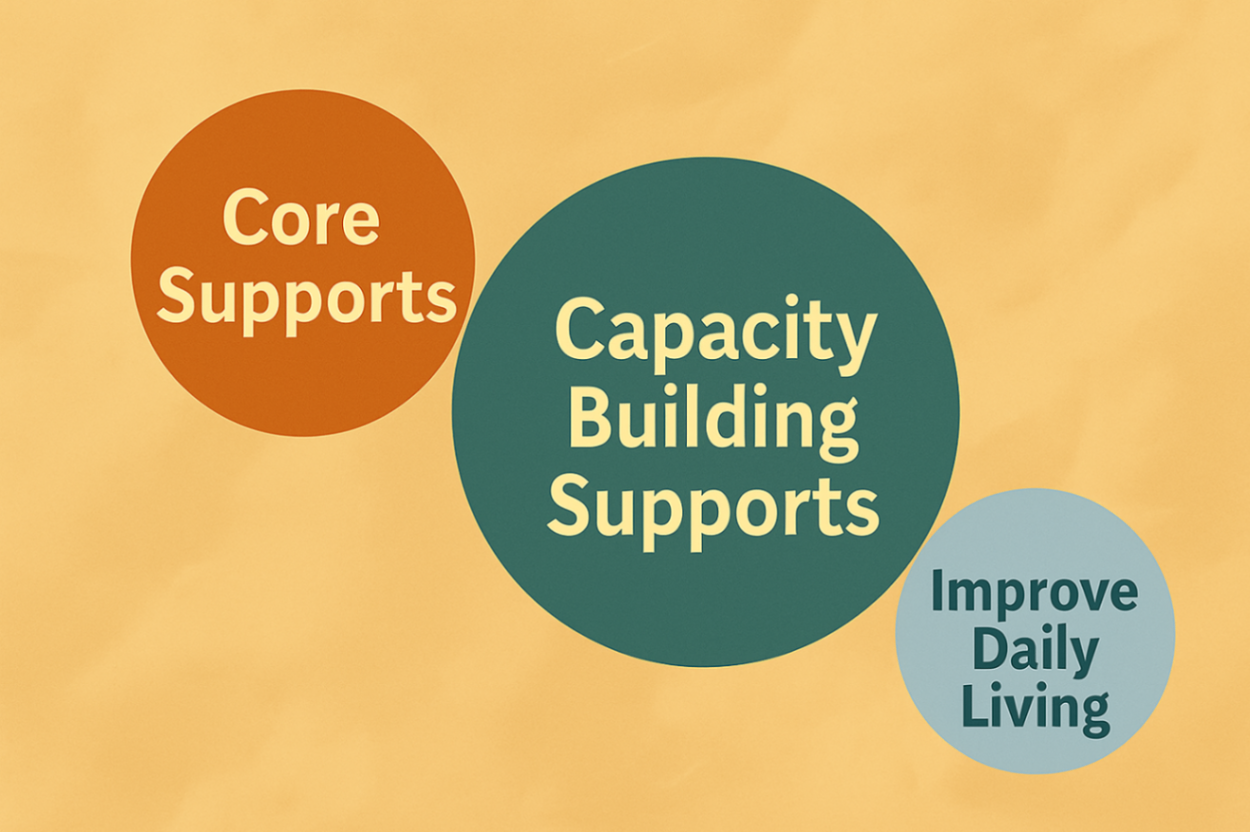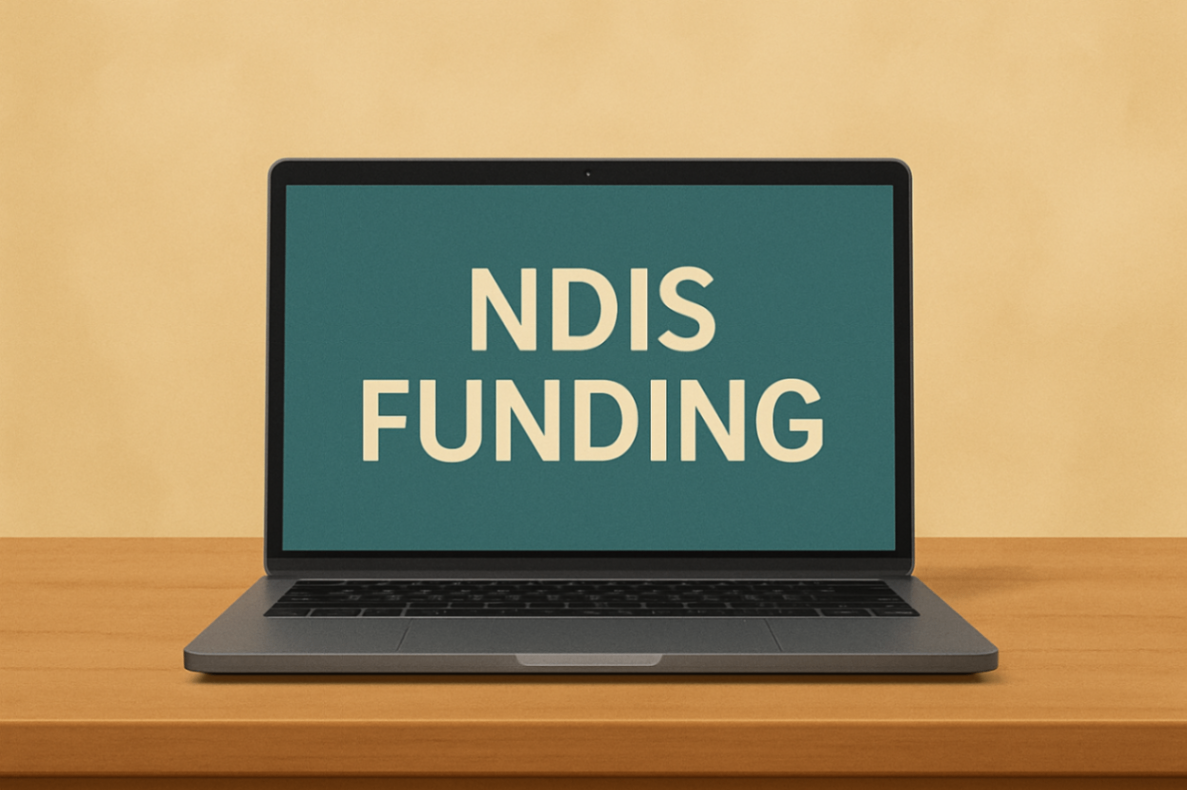
navigating the ndis for behavioural therapy in liverpool
24 June, 2025
Latest update: November 20, 2025
NDIS for Behavioural Therapy in Liverpool
Accessing the right behavioural therapy through the National Disability Insurance Scheme (NDIS) can feel confusing—but with the right support it becomes manageable, structured and effective. In Liverpool, the team at daar help families understand how NDIS funding works, what therapy options are available, and how to choose providers who deliver real outcomes in-home, at school or in-clinic.
Liverpool Parents’ Roadmap: Choosing the Right NDIS Pathway for Behaviour Therapy

For many families, navigating NDIS for challenging behaviour can feel overwhelming. But with the right behaviour support practitioner in Liverpool, it becomes manageable and goal-focused. The National Disability Insurance Scheme (NDIS) offers structured support through registered NDIS providers to ensure families in need can access evidence-based behavioural therapy.
In Liverpool and surrounding suburbs like Casula, Prestons, Wattle Grove, and Moorebank, NDIS behavioural therapy can provide life-changing outcomes. Through specialist behaviour support practitioners, families gain tailored services—such as behaviour assessments, behaviour support plans, and one-on-one therapy—that address specific needs and support long-term independence.
Key Funding Categories for Behavioural Therapy
 Under the NDIS, two main support categories cover behaviour therapy in Liverpool:
Under the NDIS, two main support categories cover behaviour therapy in Liverpool:
-
Core Supports: Flexible funding to help with day-to-day behaviour support and in-home sessions.
-
Capacity Building Supports: Focused funding to help build skills, independence and emotional regulation through specialist services.
Working with a registered NDIS provider like daar is essential to correctly align therapy with your plan’s goals, funding categories and reviews.
Types of Behavioural Therapy Funded by NDIS
Behavioural therapy offers different ways, funded by the NDIS, to help make the quality of life better for each participant. These therapies help with skill development, building social skills, and learning how to manage emotions. These NDIS-funded behaviour therapies are tailored to help participants in Liverpool with daily functioning and emotional regulation.
-
Positive Behaviour Support: This plan uses real evidence to help lower tough behaviours. The therapy gives people special help, like changing the spaces they are in and showing them new skills.
-
Cognitive Behaviour Therapy: CBT is there for people to deal with hard feelings. It also helps them think in better ways so they can build good habits.
-
Social Skills Training: Learning ways to work better with people and show kindness helps each participant get better with social skills and handle day-to-day talks with others.
-
Skill Development: A big part of these therapies is to teach life skills. This can be about how to talk, daily coping, and other things people need to know.
These therapies give people on the NDIS in Liverpool real help and support. The goal is to get them ready to do well and live on their own, right in their own community.
How is behaviour support funded by the NDIS?
 Under your NDIS plan, behaviour support is funded using line items specific to Positive Behaviour Support, delivered by a certified behaviour practitioner in Liverpool. These plans focus on what to do about certain behaviours and how to keep the good changes going.
Under your NDIS plan, behaviour support is funded using line items specific to Positive Behaviour Support, delivered by a certified behaviour practitioner in Liverpool. These plans focus on what to do about certain behaviours and how to keep the good changes going.
The following table gives a simple breakdown:
|
Support Category |
Purpose |
Examples |
|---|---|---|
|
Core Supports |
Everyday help for behaviour needs |
In-home support, therapy sessions |
|
Capacity Building Supports |
Gain more independence and skills |
Positive Behaviour Intervention, CBT |
|
Improved Daily Living |
Make daily life work better |
Behavioural assessments, tailored strategies |
These funding options make sure that NDIS providers give the right support, so people in Liverpool get better access to behavioural therapy. With this help, therapy can really work for their needs.
Every behaviour plan starts with a functional behaviour assessment—see what actually happens.
How to Include Behavioural Therapy in Your NDIS Plan
Make sure to list behaviour therapy as a primary support goal in your planning meeting. In Liverpool, NDIS planners can approve therapy funding under “Improved Relationships” for children with challenging behaviour.
To access behaviour therapy, participants must identify it as a support need during their NDIS planning meeting. Be clear about goals like emotional regulation, communication, or reducing behaviours of concern.
Your registered NDIS provider can help you and your support team craft a plan with clearly measurable goals. In Liverpool, many providers also assist with ongoing plan management and regular reviews.
Planning Meetings and Goal Setting
Families working with experienced NDIS behaviour practitioners in Liverpool often prepare a worksheet that aligns goals with outcomes like “increased social participation” or “reduced incident reports. Effective planning meetings help you find out the behavioural goals that line up with what you need. If you want to learn new skills or cut down behaviours that worry you, these meetings are key.
In these talks, the goals you set should be about what matters most to you. This can include building new skills, making communication better, and learning how to manage emotions. When your goals are clear and easy to measure, your support team can put together good plans.
A strong group with family members and NDIS providers helps your goals turn into strong steps forward. Working together to talk about your dreams and making a plan with a set timeline helps these goals become real steps you can take.
Requesting Behavioural Support in Your Plan
To ask for behavioural support in your NDIS plan, you first need to make a clear request at your planning meeting. You can have your support team with you to make sure your needs are shared with the NDIS facilitators.
Having a service provider agreement helps you put your behaviour therapy in place without problems. The behaviour support practitioner will work with you to build a behaviour support plan that looks at your needs and problems one by one.
Your plan will have goals that fit your life. It will use ways to change your environment, make your personal skills better, and help you build good behaviour. Your progress will be checked often to make sure these methods are working for you.
Our Liverpool team can guide you in making a strong case for NDIS funding for behaviour therapy, aligned with your child’s current goals. Contact us to get started.
Making the Most of Your NDIS Funding

To get the most out of your NDIS funding for behaviour therapy, it is important to plan your budget with care. Work together with your support network to decide how you will use your money for services that help you reach your goals.
If you use certain therapy supports or plan regular behaviour checks, good financial planning will help you keep things steady. By setting your goals first, you make sure every dollar counts and can move closer to living more freely and getting the life you want.
Budgeting for Behavioural Therapy Services
Good budgeting means you need to use your money wisely in your NDIS plan. Behavioural therapy is important, so you should plan your spending with care. Here are some areas to think about:
-
Talk often with a behaviour support practitioner who can make plans that fit your needs.
-
Hire support workers who can help with daily behaviour needs.
-
Plan therapy sessions that use positive feedback and help you learn new skills.
-
Save money for changes in your setting that support better therapy results.
Discuss with your NDIS plan coordinator in Liverpool to allocate funds toward both therapy and staff training. By focusing on these points, you can make sure therapy goes well and you don't spend too much. Always remember that choosing the best services will help you get good, long-term results with your ndis plan and support workers.
Managing Your Plan—Self, Plan, or NDIA Managed
You can manage your NDIS plan in three ways:
-
Self-managed: Full control to choose providers and manage payments
-
Plan-managed: A plan manager assists with budgeting and payments
-
NDIA-managed: The NDIA handles all financial aspects, limiting provider choice to registered options
Each option affects how you access behaviour support in Liverpool — especially if your practitioner is not NDIA-registered.Choose the option that best suits your capacity and confidence in navigating the NDIS system.
If you're working with a behaviour support practitioner, it's essential to understand how a Positive Behaviour Support Plan is developed, implemented, and reviewed under the NDIS. Learn more in our detailed guide to NDIS Behaviour Management Plans and Positive Behaviour Support.
Finding Behavioural Therapy Providers in Liverpool
Finding an NDIS-registered behaviour therapy provider in Liverpool is about looking for local services that fit your support needs. These providers must have the right qualifications and follow NDIS rules.
Start by finding out if they know how to make behavioural plans for each person. You can search for “NDIS behavioural therapy Liverpool” to find local specialists trained in Positive Behaviour Support, Cognitive Behaviour Therapy, and skill-based programs. The one you pick should match what you need, to make sure you get help that works for you and is easy to use.
You can find many NDIS-registered providers in Liverpool who can give good services. Looking in your area is a good way to find the best one for you.
How to Choose the Right Therapy Setting for Your Child
Therapy outcomes improve when the environment fits the child’s needs and routines. In Liverpool, options include:
-
In-home behavioural therapy: Therapy delivered in the child’s familiar environment to reduce triggers, support routine and enhance carry-over of skills.
-
Clinic-based sessions: A dedicated space for structured interventions and assessment.
-
School/Community sessions: Collaboration with educators and therapists to support consistent behaviour strategies across environments.
If you’re still weighing your options, dive into our detailed guide on specialised behaviour support in Liverpool for a suburb-by-suburb look at providers and real-world success stories.
Why Local Liverpool Families Benefit from Tailored Behavioural Therapy
Families in the Liverpool area often face busy routines, multicultural households, school & after-school logistics, and transport/travel constraints. A local provider who understands these realities offers:
-
Flexible scheduling (after-school, weekends, home visits)
-
School-consultation services with local schools
-
Multicultural, multilingual support as needed
-
Knowledge of local community access, clubs and supports
At daar we tailor services across Liverpool suburbs — bringing behavioural supports into the places where your child lives, learns and plays.
How daar Helps You Navigate Behavioural Therapy Under the NDIS
At daar, our registered behavioural practitioners support families in Liverpool (and nearby suburbs) by:
-
Explaining how your NDIS plan can be used for behavioural therapy
-
Coordinating Functional Behaviour Assessments (FBAs) and Behaviour Support Plans (BSPs)
-
Delivering therapy in settings that suit your child (home, school, clinic, community)
-
Tracking progress, adapting goals and preparing you for plan reviews
-
Collaborating with speech pathologists, psychologists, and educators to deliver consistent, high-quality support
Next Steps—Lock In Your Behaviour Support Plan and Provider
Managing your NDIS plan for behavioural therapy in Liverpool might seem tough at first. With the right information and support, you can make confident choices that improve your family’s quality of life. Need expert help navigating NDIS for challenging behaviour in Liverpool? Book your behavioural therapy consultation now and speak with a certified behaviour support practitioner near you.
Frequently Asked Questions
Which NDIS support category should I choose for behaviour therapy?
Most Liverpool families use Capacity Building – Improved Relationships because it funds professional behaviour assessments, Positive Behaviour Support plans and parent training. If behaviours impact daily routines—like morning transitions—Core Supports can also cover in-home implementation hours. The key is to link every goal you set in your planning meeting to either skill-building or reducing behaviours of concern. Bring real-life examples (school notes, behaviour data) so your planner can map goals to the correct category.
How do I add behaviour therapy goals to my NDIS plan?
Start by writing 2-3 measurable goals such as “John will use a ‘wait’ card to replace shouting at school pick-up.” Share these at your planning meeting and ask for Capacity Building hours with a registered behaviour support practitioner. Your provider can supply a goal-setting worksheet and a letter explaining why each therapy aim aligns with the NDIS criteria of social and economic participation.
What’s the difference between a Behaviour Support Plan and general therapy notes?
NDIS plans can be looked at again from time to time if needed. If the therapy needs change, the person and their support team can ask for a review. This helps the plan match their new goals. Checking the plan on a regular basis makes sure it stays right for the therapy needs and gives full support.
How often should I review my behaviour goals?
Review sessions every 3-4 months keep goals relevant and maintain motivation. Data from home, school and the therapist’s direct observations are compared to baseline measures. If behaviours have shifted or new triggers appear—starting high school, for instance—you can request a mid-plan review and adjust strategies without waiting for the annual plan renewal.
.svg)

















